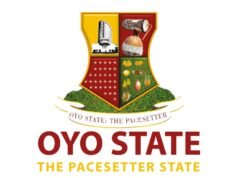Canada is renowned for its high-quality education system, welcoming environment, and diverse cultural landscape, making it an attractive destination for international students. Among those interested in pursuing higher education in Canada are holders of Higher National Diploma (HND) certificates, as well as graduates with Second Class and Third Class degrees, who often wonder if their qualifications are acceptable for entry into Canadian master’s degree programs.
This blog post delves into the acceptance of such qualifications by Canadian universities and schools for master’s degree programs, shedding light on opportunities for advanced studies in Canada for a broader range of students.
What Are The Criteria For Master’s Degree In Canada
Table of Contents
Gaining admission into a master’s degree program in Canada typically requires meeting a set of academic and procedural criteria. While specific requirements can vary significantly from one institution to another, and even among different programs within the same university, there are commonalities in what is generally expected from applicants. Below, we outline the key criteria that prospective students, including those with HND certificates, Second Class, and Third Class degrees, should be aware of when considering master’s studies in Canada:
- Minimum GPA: Many Canadian master’s programs require a minimum GPA for admission. The GPA requirement can vary, but most competitive programs look for a minimum of 3.0 on a 4.0 scale or its equivalent. Applicants with lower GPAs may need to demonstrate additional qualifications or experiences.
- English or French Language Proficiency: Non-native speakers must prove proficiency in either English or French, depending on the language of instruction at the university. Common tests include the TOEFL, IELTS for English, and TEF or DALF/DELF for French, with specific score requirements set by each program.
- Letters of Recommendation: Most programs ask for two or three letters of recommendation from academics or professionals who can vouch for the applicant’s readiness for graduate-level study.
- Statement of Purpose (SOP): A well-written SOP is critical. It should outline the applicant’s academic and professional background, explain the reasons for choosing the specific program and university, and describe career goals.
- CV/Resume: A detailed CV or resume showcasing educational background, work experience, volunteer work, and any other relevant activities is typically required.
Prospective students are encouraged to research specific requirements for their program of interest and to contact admissions offices directly for guidance, especially if their academic backgrounds include HND certificates or lower-class degrees. Many Canadian institutions value diverse student cohorts and may offer alternative pathways or consider holistic aspects of an applicant’s profile beyond just academic credentials.
Read Also: PRESSID Presidential Special Scholarship Application 2024/2025
Canada Universities that Accept HND Certificates, Second Class and 3rd Class for Masters Degree Programs
Many universities across Canada understand the value of diverse educational backgrounds and offer pathways to master’s degree programs for students who fall into these categories. Below is a list of some Canadian universities known to provide opportunities for such applicants, either directly into their master’s programs or through preparatory or bridge programs designed to elevate their qualifications to the requisite level.
1) University of Toronto
Recognized globally for its research and teaching excellence, the University of Toronto offers a range of master’s programs that may consider applicants with diverse academic backgrounds.
Specific departments and faculties often have tailored foundation or bridge programs designed to help international students, including those with HND certificates, meet the academic requirements for master’s level study.
2) Simon Fraser University (SFU)
Located in British Columbia, SFU is known for its inclusive admission policy. The university’s School of Graduate Studies may admit students with lower-class degrees or HND certificates into certain programs, provided they have shown academic improvement or possess significant professional experience.
3) University of British Columbia (UBC)
UBC has a reputation for accommodating non-traditional students, especially in departments that value professional experience as much as academic credentials. Applicants are encouraged to contact the department of interest directly to learn about specific entry pathways for HND holders or those with lower undergraduate grades.
4) Ryerson University
With a focus on innovative and career-oriented education, Ryerson University in Toronto offers several graduate programs that consider a holistic view of an applicant’s profile, including work experience, making it a viable option for those with HNDs or lower-class degrees.
5) Concordia University
Located in Montreal, Concordia provides certain graduate programs that are accessible to students with varied academic backgrounds. The university emphasizes practical experience and may offer qualifying year programs for candidates who need to bolster their academic credentials.
6) Dalhousie University
Situated in Halifax, Nova Scotia, Dalhousie is known for its flexible admission process for certain postgraduate programs, particularly for applicants demonstrating strong professional backgrounds or exceptional talent in their field of study.
Prospective students with HND certificates, Second Class, or Third Class degrees should reach out directly to the admissions offices of these universities to inquire about specific eligibility criteria, preparatory programs, and the application process.
Canada Schools that Accept HND Certificates, Second Class and 3rd Class for Masters Degree Programs
Emphasizing a practical approach to education, these schools often provide a blend of academic learning and hands-on experience, making them an attractive option for those looking to enhance their qualifications or pivot their career paths. Below is a compilation of notable Canadian schools known for accommodating students with diverse academic achievements in their advanced programs:
1) George Brown College
Situated in Toronto, George Brown offers post-graduate certificates and diplomas that can serve as a stepping stone to further master’s level studies. The college has partnerships with universities, allowing students to transfer credits and pursue a master’s degree upon completing their studies at George Brown.
2) Seneca College
Also located in Toronto, Seneca provides a range of graduate certificates that cater to individuals aiming to upgrade their qualifications. These programs are designed with industry demands in mind, offering a practical route to employment or further education.
3) Humber College
Humber’s post-graduate programs are crafted to build upon the skills and knowledge of individuals with an HND, Second Class, or Third Class degree, offering pathways to enhance employability or pursue further academic goals.
4) Algonquin College
Based in Ottawa, Algonquin College offers graduate certificate programs that focus on providing career-oriented skills and knowledge. These programs are particularly suitable for individuals seeking to complement their existing qualifications with practical expertise.
5) British Columbia Institute of Technology (BCIT)
BCIT is recognized for its applied education and offers several post-graduate diplomas and certificates. These programs are especially beneficial for HND holders and those with lower-class degrees looking to enter specific industries or improve their academic standing for future studies.
Each of these schools emphasizes a practical approach to education, with programs specifically designed to accommodate and advance the careers of students from diverse academic backgrounds.
FAQS
Can I use HND for Masters in Canada?
Yes, you can use your Higher National Diploma (HND) as a qualification for admission into a master’s degree program in Canada. A number of universities in Canada accept HNDs as equivalent to bachelor’s degrees for entry into their master’s programs. The specific requirements for admission to a master’s program in Canada may vary by university, but most HND holders will be able to find a suitable program. Additionally, many Canadian universities offer specific programs designed for international students, making the application process even easier for those with a HND.
Which university in Canada accept second class lower for Masters?
There are several universities in Canada that accept a second class lower qualification for admission into their master’s programs. The University of British Columbia, the University of Toronto, and the University of Alberta all accept a second class lower for their master’s programs. McGill University and the University of Waterloo also accept a second class lower, depending on the specific program you’re applying to.
Can I apply for Masters with my HND certificate?
Yes, you can apply for a master’s degree in Canada with your Higher National Diploma (HND) certificate. While some universities in Canada may have specific requirements for admission into their master’s programs, such as a minimum grade point average or certain prerequisites, many universities accept HNDs as equivalent to a bachelor’s degree for the purpose of admission. So, if you have a HND and are interested in pursuing a master’s degree in Canada, it’s definitely worth investigating the options available to you. Just be sure to check the specific re
What is the minimum CGPA requirement for Masters in Canada?
The minimum CGPA (cumulative grade point average) requirement for admission into a master’s degree program in Canada varies by university and program. Generally, most universities require a minimum CGPA of 3.0 on a 4.0 scale, or 70% to 75% overall. However, some competitive programs may have higher requirements. Additionally, some universities may require a higher CGPA in specific areas, such as the last two years of your undergraduate studies.
What is the minimum qualification for masters in Canada?
In general, the minimum qualification for admission into a master’s degree program in Canada is a bachelor’s degree from an accredited university. However, the specific requirements may vary by university and program. Some universities may also require additional qualifications, such as a minimum grade point average, relevant work experience, or certain prerequisites.
Conclusion
In conclusion, Canadian universities are an excellent option for students who want to pursue a master’s degree with a HND, second class, or third class degree. These universities offer a high standard of education, a variety of master’s degree programs, and a welcoming environment for international students.
While the specific requirements for admission to a Canadian university may vary, most accept HND certificates, second class, and third class degrees as qualifications for entry into their master’s programs. For students seeking to study in Canada, the options are numerous and the quality of education is exceptional.









